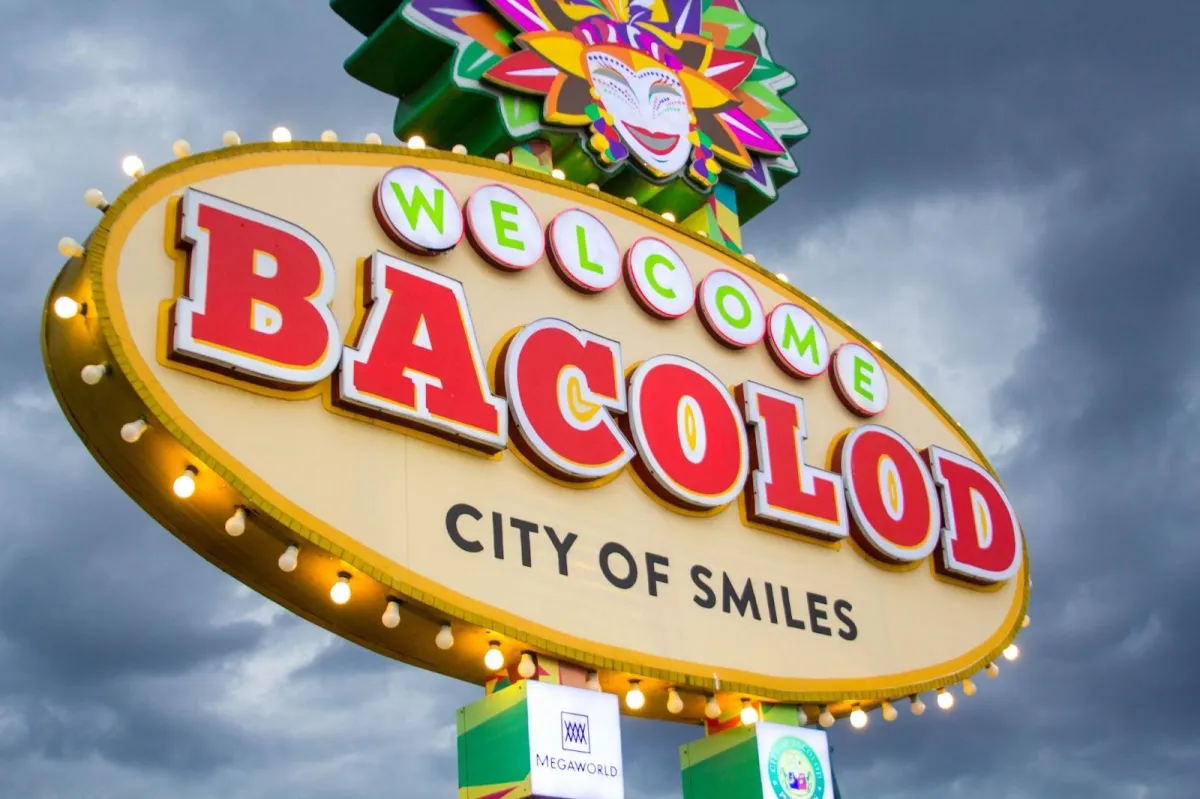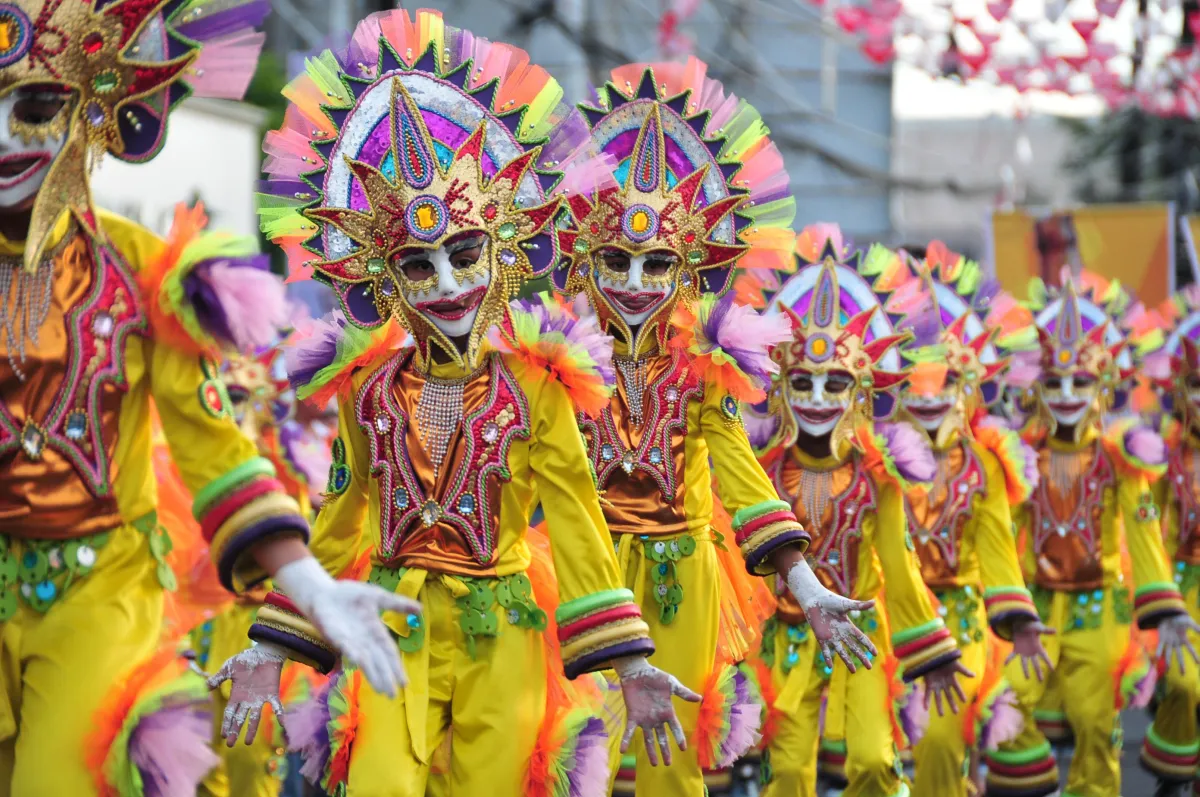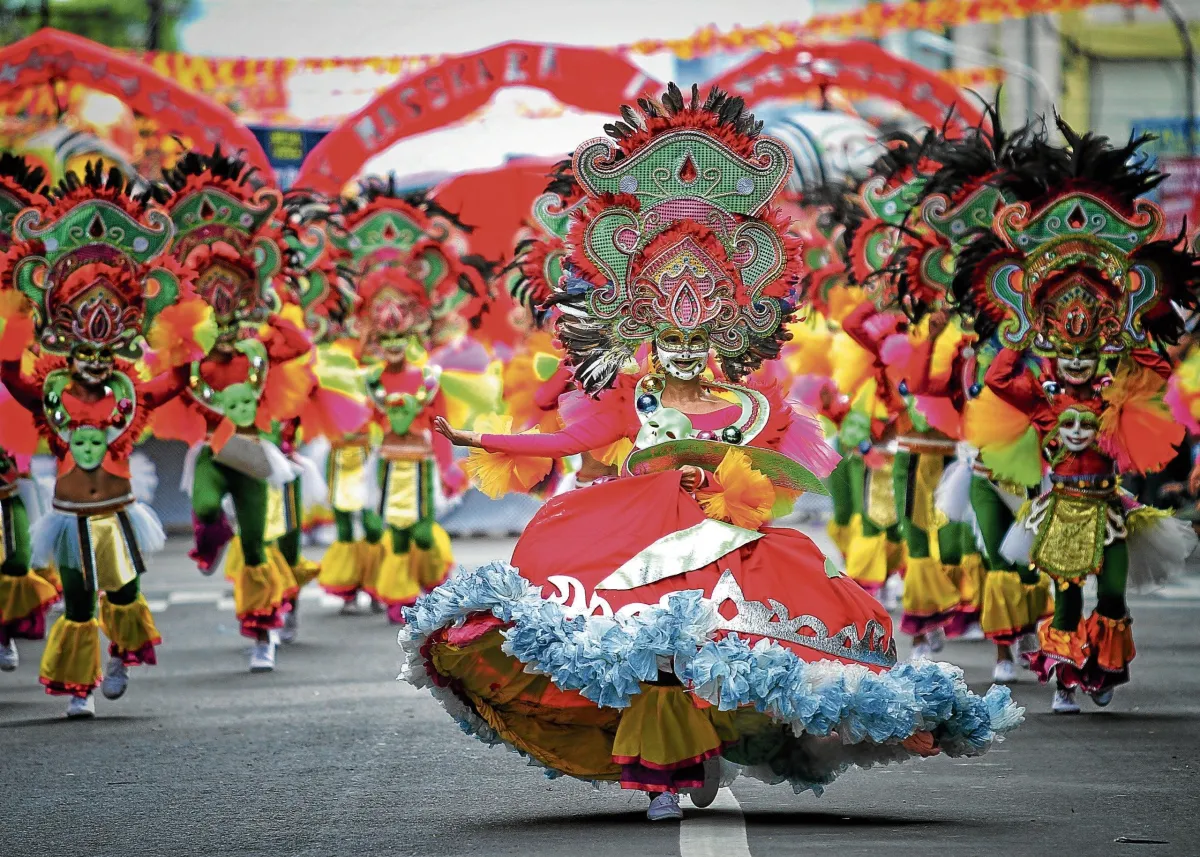⭕ SMART: 098 5973 7798 ⭕ GLOBE: 091 5874 9128 ⭕LANDLINE: 034 466 4554
Bacolod City, The City Of Smiles Review
Chapter 1: Negros Occidental - A Land of Promise
Negros Occidental, located in the western part of the Philippines, is a province characterized by its fertile lands, sugarcane plantations, and a rich cultural tapestry. In the midst of this province, Bacolod City would emerge as a shining beacon of optimism and joy, earning its reputation as the "City of Smiles."
Chapter 2: Early Inhabitants and Spanish Colonization
Before the arrival of Spanish colonizers, Negros was inhabited by indigenous peoples, including the Ati and the Bukidnon. The fertile soil of the island drew the attention of Spanish explorers and settlers. By the late 18th century, Negros Occidental became a Spanish colony.
Bacolod, then a small coastal settlement, was officially founded in 1770 when Spanish Governor-General Manuel Valdez approved its establishment. The city's name is believed to have been derived from the local Visayan term "bakólod," meaning "hill, mound, or rise," referring to the hilly terrain of the area.
Chapter 3: Sugar and Prosperity
The 19th century marked a pivotal era for Bacolod as it transitioned from a small pueblo into a thriving center of commerce and agriculture. The sugarcane industry began to flourish, and Bacolod's strategic location as a port facilitated trade and the transportation of sugar to international markets.
The prosperity brought about by the sugarcane industry attracted migrants from various parts of the Philippines and abroad. Chinese, Spanish, and other foreign settlers arrived in Bacolod, contributing to the city's multicultural character. The influx of diverse cultures added depth to Bacolod's identity.
Chapter 4: The Birth of the Masskara Festival
The Masskara Festival, Bacolod's most iconic celebration, had its origins in the early 1980s. At that time, the city faced economic challenges due to the decline in sugar prices, exacerbated by a tragedy – the sinking of the MV Don Juan, a passenger ferry, which claimed numerous lives.
In response to these hardships, the people of Bacolod chose to express their resilience and optimism through creativity and unity. The Masskara Festival was born, characterized by vibrant masks, colorful costumes, and energetic street dancing. The festival's name combines "mass" (many) and "kara" (face), symbolizing the multitude of smiling faces that came together to uplift the city's spirit.
Chapter 5: The City of Smiles Emerges
Bacolod City's moniker as the "City of Smiles" did not emerge solely from the Masskara Festival but also from the genuine warmth and hospitality of its residents. Bacolodnons are known for their friendliness, their penchant for engaging in lively conversations, and their readiness to offer a smile to both friends and strangers. This reputation for amiability became synonymous with Bacolod City, attracting visitors and tourists from across the Philippines and beyond. The Masskara Festival played a crucial role in showcasing Bacolod's identity as a city that finds joy even in the face of adversity.
Chapter 6: The Festival of Festivals
The Masskara Festival grew from a small community event into one of the Philippines' most renowned festivals. Each year, the city comes alive with music, dance, and vibrant masks. Local and international tourists flock to Bacolod to witness the grand street parades and immerse themselves in the infectious spirit of joy.
The festival has also become a platform for artists and craftsmen to showcase their talents. Intricately designed masks and costumes, often made by hand, reflect the creativity and craftsmanship of Bacolodnons. The Masskara Festival has not only brought pride to Bacolod but has also contributed to the preservation of local artistry.
Chapter 7: Economic Progress and Urban Development
Bacolod's economic landscape has evolved over the years. While sugarcane remains a vital industry, the city has diversified its economy, with sectors such as information technology, services, and tourism gaining prominence. Bacolod has seen the rise of modern malls, business districts, and a thriving culinary scene.

The city's urban development reflects its commitment to progress while preserving its cultural heritage. Ancestral homes, such as the Balay Negrense, remain integral to Bacolod's identity, coexisting harmoniously with modern infrastructure and establishments.
Chapter 8: Challenges and Resilience
Like any city, Bacolod has faced its share of challenges. Economic fluctuations, natural disasters, and the recent global pandemic have tested the resilience of its residents. However, Bacolodnons have consistently demonstrated their ability to adapt and overcome adversity, upholding their reputation as a city of smiles.
Chapter 9: Bacolod Today
Bacolod City continued to be a vibrant and dynamic city. Its commitment to culture and the arts remained evident through various initiatives, including the ongoing success of the Masskara Festival. The city's culinary scene, known for its delectable delicacies and vibrant food culture, attracted food enthusiasts from all over. Bacolod's restaurants and eateries offered a taste of the city's culinary heritage, with dishes like chicken inasal, piaya, and other local specialties.
Chapter 10: A Smile that Endures
Bacolod City's journey from a small coastal settlement to the "City of Smiles" is a testament to the resilience, creativity, and optimism of its people. The Masskara Festival serves as a reminder of the city's ability to find joy in every circumstance and to come together in celebration of life.
As Bacolod continues to evolve and face new challenges, its spirit remains unchanged. It is a city that wears its smile as a badge of honor, an emblem of its enduring identity as a place of warmth, welcome, and unwavering positivity. Bacolod, the "City of Smiles," continues to inspire and captivate all who are fortunate enough to experience its unique charm.
The City of Smiles, also known as Bacolod City, is a vibrant and welcoming city located in Negros Occidental, Philippines. Known for its warm hospitality and friendly locals, Bacolod has earned its endearing nickname because of the genuine smiles that greet visitors and residents alike. This spirited and lively city is a melting pot of culture, history, and modernity, making it a must-visit destination in the Philippines.
Bacolod is famous for its rich cultural heritage, particularly during the annual MassKara Festival, a vibrant and colorful celebration that showcases the city's creativity and resilience. During this festival, locals wear elaborately decorated masks adorned with bright smiles, symbolizing their ability to find joy and hope even in the face of challenges. The streets come alive with street dancing, music, and extravagant parades, creating an atmosphere of happiness and camaraderie that captivates all who attend. Aside from its lively festivals, Bacolod offers a diverse range of attractions and activities. History buffs can explore the city's well-preserved heritage houses and landmarks, which offer glimpses into its colonial past. The San Sebastian Cathedral and the ancestral homes along Burgos Street are just some of the many historical gems that tell the story of Bacolod's past.
Bacolod is also a food lover's paradise, celebrated for its delectable cuisine, particularly the famous chicken inasal – a mouthwatering grilled chicken dish marinated in a blend of local spices. The city's culinary scene extends to a wide variety of delicacies, sweets, and treats, making it a gastronomic adventure for visitors.
The City of Smiles is not just about festivities and food; it is a city of progress and modernity. Boasting a vibrant commercial and business district, Bacolod has become a hub for commerce, education, and technology in the region.
However, amidst its growth, Bacolod retains its warm and welcoming spirit. The locals, known as Bacoleños, are known for their friendliness and their innate ability to make visitors feel at home. Whether you're exploring the city's attractions or simply interacting with the locals, you're sure to be greeted with a genuine smile that reflects the heart of Bacolod.
The City of Smiles, Bacolod, is a city that embraces its cultural heritage, celebrates life with joy and festivity, and welcomes visitors with open arms and genuine smiles. It is a place where history and modernity harmoniously coexist, offering a delightful blend of experiences for those who have the pleasure of exploring its streets and meeting its people. Bacolod is a testament to the resilience and spirit of its residents, who continue to find reasons to smile and share their happiness with the world.

Some Things You Can Do In The City Of Smiles
Explore the MassKara Festival: If you happen to visit Bacolod in October, don't miss the vibrant MassKara Festival. Join the festivities, witness the street dancing and colorful parades, and immerse yourself in the joyous atmosphere.
Visit Historical Landmarks: Bacolod is rich in history, and you can explore various historical landmarks like the San Sebastian Cathedral, Negros Occidental Capitol Building, and the Dizon-Ramos Museum, among others.
Indulge in Inasal: Bacolod is famous for its mouthwatering chicken inasal. Head to Manokan Country or other local eateries to savor this delectable grilled chicken dish, served with a side of sinamak (spiced vinegar) and unlimited rice.
Enjoy Local Delicacies: Don't stop at inasal; Bacolod offers a wide array of local delicacies and sweets. Try piaya, napoleones, and puto, among others.
Explore The Ruins: Just outside Bacolod, visit The Ruins, a beautiful mansion that remains as a testament to a love story and a symbol of resilience.
Experience Nature: Bacolod is surrounded by natural beauty. Take a trip to Mambukal Mountain Resort to enjoy hot springs, waterfalls, and trekking trails.
Shop at Pasalubong Centers: Bring home some souvenirs and local products from Pasalubong Centers, where you can find a variety of treats to share with family and friends.
Stroll Along the Capitol Lagoon: Enjoy a leisurely walk or have a relaxing boat ride in the serene surroundings of the Capitol Lagoon.
Discover Art and Culture: Visit galleries and art spaces in Bacolod to appreciate local art and the city's thriving art scene.
Attend Local Events and Festivals: Apart from MassKara, Bacolod hosts various cultural events and festivals throughout the year. Check the calendar for other exciting happenings during your visit.
Visit Negros Museum: Learn about Negros Occidental's history and culture through the exhibits at Negros Museum.
Enjoy Nightlife: Experience the vibrant nightlife of Bacolod with its numerous bars, clubs, and entertainment venues.

Why You Should Visit The City Of Smiles
Once upon a time in the City of Smiles, a mischievous group of monkeys decided to stage a hilarious takeover! These cheeky primates had observed the locals' infectious smiles and thought, "Why not spread some laughter of our own?"
It all began one sunny morning when the monkeys ambushed the city's main square, armed with water balloons and bananas. As the residents started their day, they were greeted by a barrage of water balloon attacks and banana peels scattered everywhere. Laughter erupted, and soon the entire square turned into a giant water fight and slip 'n' slide extravaganza!
The monkeys weren't content with just a water fight. They donned hats and masks, imitating the iconic MassKara Festival. Now, instead of just smiling faces, the city was filled with grinning monkeys, dancing to their own rhythm and creating a spectacle like never before.
The mischievous monkeys didn't stop there. They infiltrated the city's famous chicken inasal restaurants, playfully stealing bites from everyone's plates, leaving diners in stitches. The chickens seemed to join in on the fun, clucking along to the rhythm of the laughter-filled restaurant.
A Summary On The City Of Smiles
The nickname "City of Smiles" is well-deserved, as the genuine smiles of the residents light up the entire city, creating a joyful and inviting atmosphere for visitors.
A Journey through Time
Bacolod City, nestled in the heart of Negros Occidental, Philippines, is known by many endearing names—the "City of Smiles," the "Sugar Bowl of the Philippines," and the "Gateway to Negros." Its story is one of resilience, culture, and a remarkable spirit that radiates through its people. As we embark on this journey through time, we delve into the biography and story of the City of Smiles.
The Indigenous Roots
Bacolod's history traces back to the indigenous people who inhabited the region long before Spanish colonization. These native Visayans, primarily the Ilonggo-speaking Tumandok, relied on agriculture, fishing, and craftsmanship for their livelihoods. The region's lush landscapes and fertile soil laid the foundation for Bacolod's future as an agricultural powerhouse.
Spanish Colonization and Sugar Boom
The arrival of Spanish colonizers in the 18th century marked a significant turning point for Bacolod. Under Spanish rule, the region's agricultural potential was realized, leading to the establishment of vast sugarcane haciendas. These sugar plantations became the economic backbone of the area, shaping Bacolod's identity as the "Sugar Bowl of the Philippines."
The Rise of a Sugar Empire
The hacienderos, or sugar barons, who owned these vast sugarcane estates became influential figures in Bacolod's history. The sugar industry not only fueled economic growth but also contributed to the cultural heritage of the city. The opulent ancestral homes of these sugar barons, often referred to as "Balay na Bato" (stone houses), stand as architectural marvels and living relics of Bacolod's past.
The Negrense Spirit
Throughout its history, Bacolod faced various challenges, including natural disasters and economic downturns. However, the spirit of the Negrenses—the people of Negros—remained unbreakable. Bacolodnons are known for their resilience, their sense of community, and their warm and welcoming smiles, which would later earn the city its endearing nickname.
The Festival of Smiles
One of Bacolod's most iconic cultural contributions is the MassKara Festival. In the early 1980s, faced with a series of tragedies and economic hardships, Bacolodnons decided to showcase their indomitable spirit through art and celebration. The result was the MassKara Festival—a vibrant, mask-themed street party that has since become one of the most famous festivals in the Philippines.
Bacolod Today
Bacolod City has evolved into a bustling urban center, with a thriving economy that extends beyond the sugar industry. Its central business district is a hub of commerce and culture, featuring modern malls, restaurants, and entertainment venues. Bacolod's development has been driven by its diverse industries, including information technology, services, and manufacturing.
The Sweetness of Bacolod
One cannot explore the story of Bacolod without savoring its culinary treasures. The city is renowned for its delectable cuisine, which blends local flavors with international influences. Bacolod is particularly famous for its mouthwatering desserts, including piaya (sweet flatbread with muscovado sugar), napoleones (layered puff pastry filled with custard), and various sugar-based delicacies.
The Future of Bacolod
As Bacolod continues to evolve, it faces new challenges and opportunities. The city's leaders are committed to sustainable urban development, infrastructure improvement, and the preservation of its cultural heritage. Bacolod's future holds promise as it embraces modernity while cherishing its past.
The Smile That Never Fades
The nickname "City of Smiles" isn't just a label; it's a reflection of Bacolod's enduring spirit. Bacolodnons, with their warm hospitality and cheerful disposition, welcome visitors with open arms. The smiles that greet you in Bacolod are not just expressions of joy; they are a symbol of the city's resilience, optimism, and the rich tapestry of its history.
Bacolod City, the "City of Smiles," is a testament to the indomitable spirit of its people, the richness of its cultural heritage, and the promise of a future where the smiles never fade. It is a city where the past and the present coexist harmoniously, creating a vibrant tapestry of life, culture, and the enduring legacy of the Negrense spirit.
Bacolod is a city that celebrates its rich cultural heritage and offers a delightful blend of history, modernity, and festivities. The MassKara Festival, a colorful and lively celebration held in October, is a highlight of Bacolod's cultural calendar, showcasing the city's creativity and resilience through vibrant masks and exuberant street dancing. The city's culinary scene is a treat for food enthusiasts, with the famous chicken inasal being a must-try dish. Visitors can also indulge in a variety of local delicacies and sweets, such as piaya and napoleones, adding a delightful gastronomic adventure to their trip.
Beyond its festivals and food, Bacolod offers numerous attractions, including historical landmarks, beautiful natural spots, and a thriving art scene. The Ruins, a well-preserved mansion, is a popular tourist spot, offering visitors a glimpse of the city's past and providing a picturesque backdrop for photos. However, what truly sets the City of Smiles apart is its friendly and hospitable people. The locals, known as Bacoleños, are renowned for their warmth and genuine smiles, making visitors feel at home and welcome throughout their stay.
In summary, Bacolod, the City of Smiles, is a delightful destination that captivates with its joyful ambiance, cultural festivities, mouthwatering cuisine, and warm-hearted people. Whether you're exploring its historical landmarks, enjoying its festivals, or simply mingling with the locals, Bacolod promises an unforgettable experience filled with laughter, camaraderie, and cherished memories.

